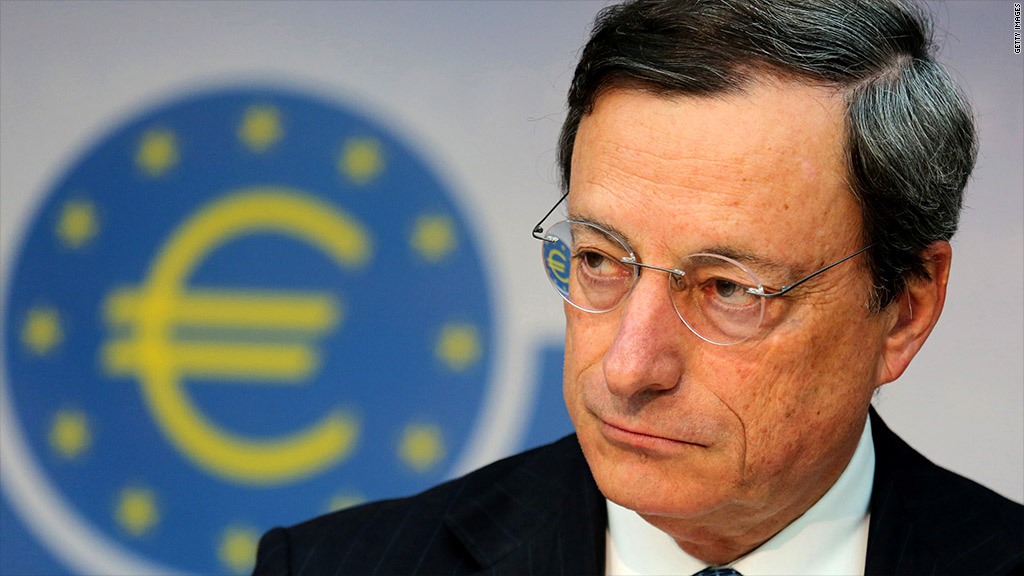
European Central Bank president Mario Draghi outlined the details of a plan to buy euro area government bonds, reiterating his pledge to do "whatever it takes" to preserve the euro.
Following a meeting of top ECB officials in Frankfurt on Thursday, Draghi said the ECB is prepared to make "outright monetary transactions," or OMTs, in the secondary bond market.
The goal is to "address severe distortions in government bond markets," which he said stem from "unfounded fears on the part of investors of the reversibility of the euro."
He said the OMTs will be subject to conditions, including the activation of the two eurozone rescue funds -- European Financial Stability Facility or European Stability Mechanism. In other words, governments that want the ECB to buy its bonds must agree to a program of reforms and oversight by the bailout funds and possibly the International Monetary Fund.
The move is aimed mainly at Spain and Italy, which struggled with unsustainable borrowing costs earlier this year, although Draghi said the offer is open to all euro area governments. So far, neither Madrid or Rome has officially requested support from the bailout funds.
There will be no "ex ante limits on the size" of the purchases, said Draghi, calling the plan a "fully effective back stop that removes tail risks from the euro area."
The purchases will focus on bonds with a duration of between 1 and 3 years. And Draghi said the ECB will not be considered a preferred creditor under the new program.
Investors welcomed the comments, with stock markets rallying in Europe and the United States. In the bond market, yields on Spanish and Italian bonds fell sharply.
Related: European stocks rise on ECB
"This is a very significant step for the ECB," said Marie Diron, senior economic adviser to the Ernst & Young. "The ECB did not disappoint on the very high expectations in the market."
Diron praised the ECB for being proactive, but she added that the new program alone "is not enough for the eurozone economy to turn itself around."
"The program certainly improves the financial market environment and will create some room for governments to hold up their part of the bargain," she said.
During his press conference, Draghi said "conditionality" is the most important difference between the OMTs and past interventions in the bond market under the ECB's Securities Market Program.
The ECB president stressed that intervening in the bond market is not effective without "concurrent" policy actions by government policy makers. "You need two legs," he said.
Related: Europe's unstable hammock
Guy LeBas, chief fixed income analyst at Janney Capital Markets, called the emphasis on conditionality "a sacrifice to the German financial gods."
"Essentially, if a bailed out country doesn't meet its fiscal target, the ECB stops buying, and borrowing rates go through the roof," LeBas wrote in a note to clients. "It also allows the ECB an 'out,' which reduces the effectiveness of the purchase program."
The decision was backed by all members of the ECB's governing council, with one exception. Jens Weidmann, president of the German Bundesbank, has made his opposition to bond buying publicly known.
Draghi reiterated his argument that bond buying is not a violation of the ECB's mandate because dysfunctional financial markets are impeding the "transmission" of monetary policy.
However, he downplayed reports that ECB leaders are divided along geographic lines, with more hawkish Northerners opposed to more dovish Southerners.
"There is a mistaken caricature, particularly in this country (Germany) about how the governing council works," he said.
Meanwhile, the ECB said its main refinancing rate will remain at a record low of 0.75%. Some analysts had expected a rate cut to 0.5%.
The ECB also lowered its outlook for economic growth this year to a range between a decline of 0.6% and 0.2%.


